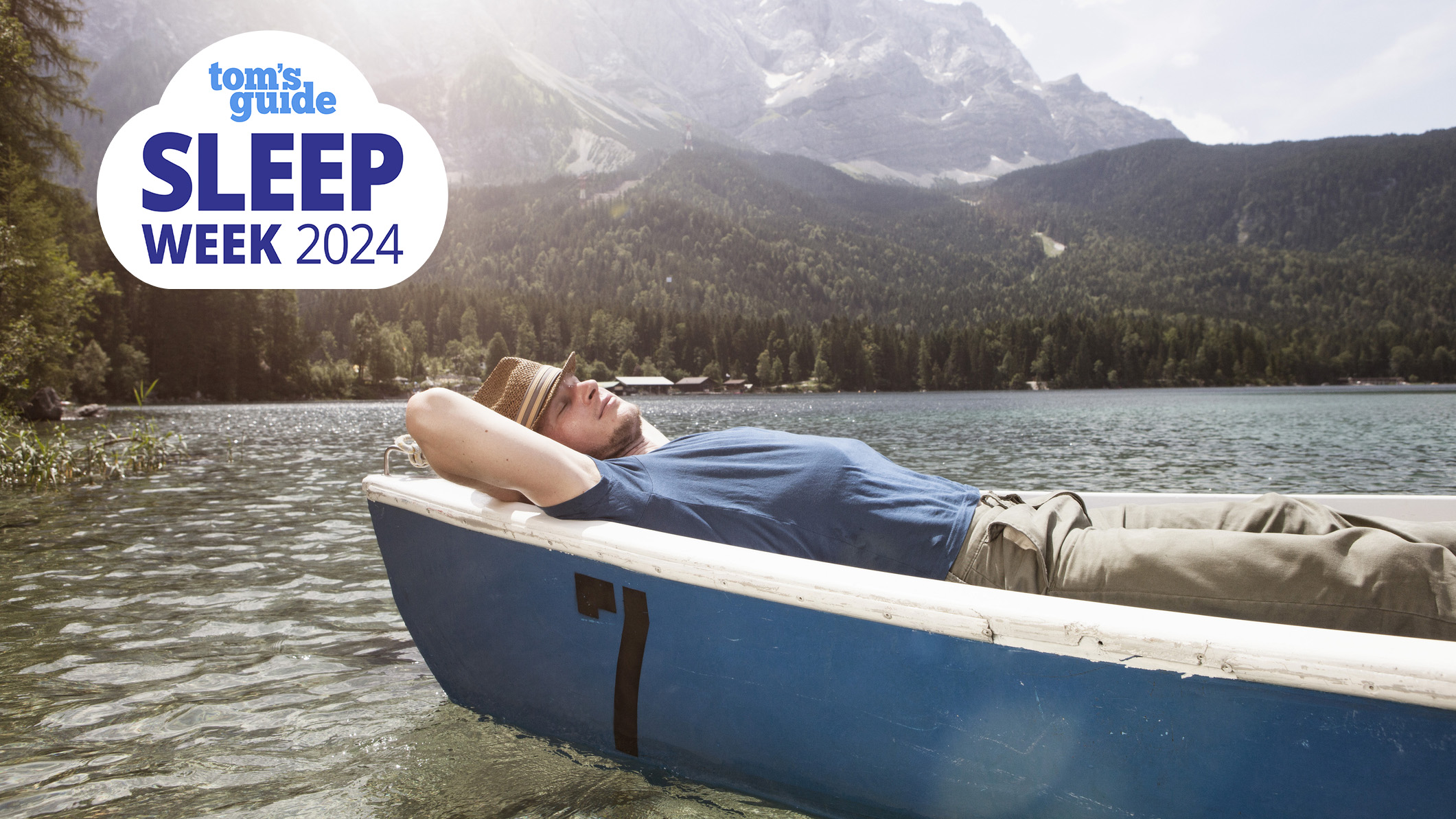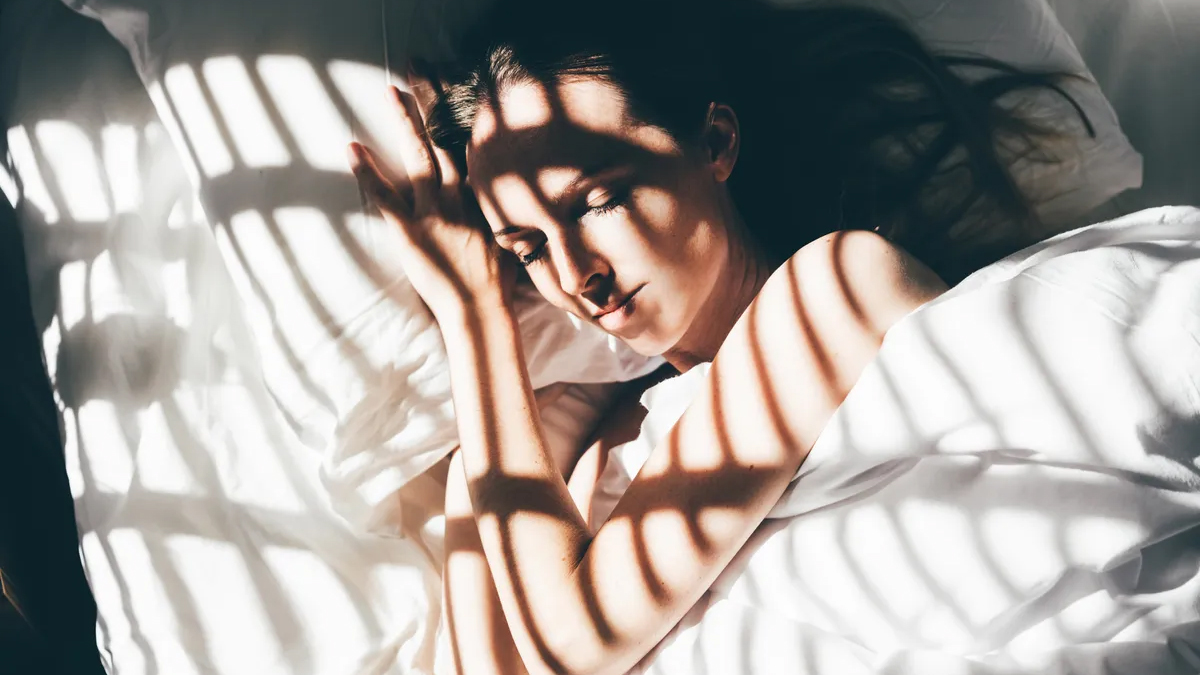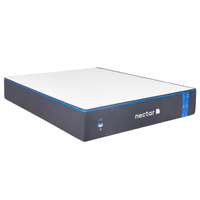How to use the Military Sleep Method to fall asleep fast at night
The military method for sleeping is super-popular, but can it really help you fall asleep in two minutes? We find out...

The Military Sleep Method is a super-popular technique originally developed to help soldiers fall asleep in combat environments, maximizing their chances of getting rest when the opportunities arise in the field. So if you have trouble falling asleep at night, or you only have a short window of time within which to nap in the day, the military method for sleeping could help you fall asleep fast.
Whether it can help you fall asleep in two minutes (as many people claim) depends on a variety of factors. Chief among this is how receptive you are to cognitive behavioral therapy (CBT), and how often you can practise the Military Sleep Method; this should form part of your nighttime routine.
Like all good things, practice makes perfect, so don't expect to perform the military sleeping method once and fall asleep in two minutes flat. Instead, set a goal of falling asleep much faster within six weeks of using the method – and by 'fast' we mean within several minutes or less. For Sleep Awareness Week 2024, we look at this popular technique and how effective it really is.
- Read more: Intrusive thoughts keeping you awake? Try this ER doctor ‘brain hack’ to fall asleep quickly
Nectar Mattress: up to 40% off at Nectar Sleep
During Sleep Awareness Week, you can save up to 40% on memory foam and hybrid mattresses at Nectar Sleep. We rate the Nectar Memory Foam as the best mattress for most sleepers with a smaller budget seeking a breathable and supportive all-foam bed to relieve pressure on joints, reducing aches and pains. A queen is now reduced to $649 in the US and £600 with a free bedding bundle in the UK. You'll also get a lifetime warranty and year's sleep trial.
What is the Military Sleep Method?
This US army sleep technique was first documented in Lloyd Bud Winter’s often-quoted 1981 book Relax and Win: Championship Performance. The technique was designed to help soldiers fall asleep fast by focusing on relaxation and alleviating muscle tension. In turn, this activates the parasympathetic nervous system, which oversees rest and sleep.
@justin_agustin ♬ You - Petit Biscuit
In his book, Winter described it as a highly effective method to help you fall asleep in two minutes. We've been using the military sleeping method for over two years now so it definitely helps us fall asleep in mere minutes, but you'll probably have a hard time falling asleep in two minutes the first few times you use the technique.
Within six weeks, the Military Sleep Method is said to be effective for 96% of people.
How to use the military sleep method
1. First, relax your jaw and facial muscles, including your tongue.
Sign up to get the BEST of Tom's Guide direct to your inbox.
Get instant access to breaking news, the hottest reviews, great deals and helpful tips.
2. Now drop your shoulders down as far as they’ll go to release the tension.
3. Keep your arms loose by your sides, relaxing your fingers and hands.
3. Exhale deeply to relax your chest, then relax the muscles in your legs and feet.
4. Imagine a calming, warm sensation spreading from your head down to your toes.
5. Inhale and exhale deeply, clearing your mind of thoughts and stresses.
6. Now think about one of the following two images: either you are lying on your back in a canoe on a placid, calm lake with nothing but a crystal clear sky above you. Alternatively, imagine you are lying in a black velvet hammock in a pitch black room.
If your mind wanders off, repeat the words, ‘Don’t think, don’t think, don’t think’ for about 10 seconds before returning to the visualisation. Repeat this until you feel drowsy and fall asleep.
Does the Military Sleep Method work?
Military sleep techniques do not work for everyone, and that reasons are unclear but some believe it's down to how receptive you are to Cognitive Behvaioral Therapy, imagery and guided meditations.
If you have a hard time when any of those methods, then there's a high chance you will struggle with the Military Sleep Method. Instead, you may be better off with sleep sounds (such as white noise or rainfall sounds) to relax you and help you fall asleep fast at night. Alternatively, you could try simple breathing exercises like the 'alpha bridge' method.
For the rest of us, there's every reason to believe the Military Sleep Method can help you drop off quickly. Using it to fall asleep in two minutes at first might be a tall order, but give it six weeks of nightly practise and you should be falling asleep much faster than before.

How long does it normally take to fall asleep?
Most doctors of sleep medicine and chartered psychologists who specalized in sleep disorders will say that a healthy adult should fall asleep within 20 minutes of being in bed, given the right conditions.
Those conditions include feeling drowsy (you have a hunger to sleep), being in a bedroom that's optimized for sleep (cool, dark and quiet), and avoiding caffeine, blue-light emitting screens and other stimulants before bed.
Why to see your doctor about sleep issues
If you're struggling to fall asleep within a healthy amount of time at night (usually within 20 minutes for most healthy adults), and this has been going on for more than a week, then it's time to look at some potential causes.
Not knowing your sleep chronotype can lead to trouble at bedtime, as you might be a night owl forcing themselves into an early worm's sleep routine. Check in with yourself around bedtime and ask yourself, 'Am I feeling tired enough to fall asleep easily?' If not, you may want to look at pushing your bedtime back a little to build up your sleep drive (hunger for sleep).
If you feel your inability to fall asleep quickly is driven by stress or a mental health issue, we'd advise speaking to your doctor or healthcare professional to see what support is available.

Claire is a fully qualified journalist and Certified Sleep Science Coach with over 16 years’ product review experience. Claire is responsible for all mattress and sleep content published on Tom’s Guide, including our Best Mattress of 2025 buying guide. She is our expert on Saatva, DreamCloud, Nectar and Tempur-Pedic mattresses, and is also our in-house hybrid mattress specialist. Claire is certified to advise people on how to choose a mattress that best suits their sleep, body and budget, as well as helping them to create a nighttime routine and bedroom environment that promote good sleep. As Senior Sleep and Mattress Editor, Claire takes the lead on developing and overseeing rigorous testing procedures for our mattress reviews, both at home and in our fully equipped Sleep Lab. Claire leads a team of experienced sleep and mattress specialists who report on and test a wide range of mattress and sleep products, and she also writes about all things related to sleep, and has interviewed a wealth of experts including mattress designers and buyers, neuroscientists, and doctors of sleep medicine.

